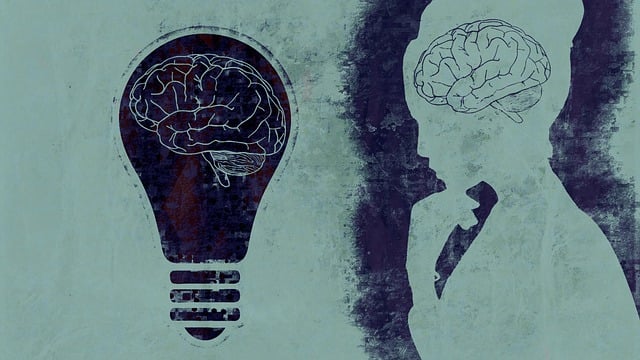Postpartum depression (PPD), often emerging within a year of childbirth, poses significant risks, especially when linked to substance abuse disorders due to coping mechanisms. Early intervention focusing on recognizing subtle changes and promoting open conversations about mental health is key. Superior postpartum depression therapy, coupled with reducing stigma and fostering positive thinking, empowers new parents to avoid substance abuse. This holistic approach includes counseling, support groups, medication management, and evidence-based practices to build resilience, address co-occurring disorders, and prevent relapse, ultimately leading to lasting recovery through a supportive network.
Substance abuse during postpartum period poses significant risks, often linked to complex issues like superior postpartum depression. This article delves into strategies to mitigate these dangers, focusing on understanding the connection between depression and substance misuse. We explore early intervention techniques to recognize and support at-risk individuals, effective therapeutic approaches tailored for risk reduction, and the crucial role of supportive networks in fostering long-term recovery.
- Understanding Postpartum Depression and Substance Abuse: The Complex Relationship
- Early Intervention: Recognizing Signs and Providing Support
- Therapeutic Approaches for Effective Risk Reduction
- Building a Supportive Network for Long-Term Recovery
Understanding Postpartum Depression and Substance Abuse: The Complex Relationship

Postpartum depression (PPD) is a complex mental health condition that can significantly impact new mothers, often emerging within the first year after childbirth. This period is already filled with significant physical and emotional changes, and PPD adds another layer of challenge. The relationship between PPD and substance abuse is particularly concerning, as these conditions are closely intertwined. Studies show that women struggling with postpartum depression are at a higher risk of developing substance use disorders, often as a coping mechanism to manage their symptoms.
Understanding this connection is crucial for implementing effective risk reduction strategies. Superior postpartum depression therapy, including counseling, support groups, and medication management, plays a pivotal role in prevention. Mental illness stigma reduction efforts can encourage open dialogue, enabling mothers to seek help early on. Moreover, fostering positive thinking and promoting healthy coping mechanisms can empower new parents to navigate this transition period without resorting to substances for relief.
Early Intervention: Recognizing Signs and Providing Support

Early intervention plays a pivotal role in mitigating risks associated with substance abuse. Recognizing subtle signs such as changes in mood, behavior, or social patterns can be a life-saving step. When individuals exhibit red flags like increased irritability, isolation from peers and family, or sudden shifts in academic or work performance, it’s crucial to provide them with support. This initial response can prevent what might escalate into more severe issues.
Encouraging open conversations about mental health, including superior postpartum depression therapy, trauma support services, and self-esteem improvement strategies, forms the backbone of effective early intervention. By integrating mind over matter principles, individuals can develop healthier coping mechanisms, fostering resilience against substance abuse. Promptly addressing these concerns can guide those at risk towards better choices and a brighter future.
Therapeutic Approaches for Effective Risk Reduction

Therapeutic approaches play a pivotal role in effective risk reduction for substance abuse. Superior postpartum depression therapy, for instance, can significantly mitigate risks by addressing underlying emotional vulnerabilities and promoting mental health awareness. This holistic approach involves not just treating symptoms but also fostering inner strength development, which is crucial in managing stress and preventing relapse.
By integrating evidence-based practices, therapists help individuals navigate complex emotional healing processes, offering them the tools to cope with triggers and cravings. These therapeutic interventions are designed to enhance resilience, enabling individuals to make healthier choices and lead more balanced lives. Through individualized support and a deep exploration of personal challenges, therapy empowers those struggling with substance abuse to break free from harmful patterns and embrace lasting recovery.
Building a Supportive Network for Long-Term Recovery

Building a supportive network is an essential component of long-term recovery from substance abuse. This includes connecting with understanding and compassionate individuals who can offer encouragement, accountability, and practical assistance throughout the healing process. Support groups, both in-person and online, play a crucial role in providing a safe space to share experiences and gain insights from peers facing similar challenges. Additionally, seeking professional help from therapists specializing in superior postpartum depression therapy can be invaluable, as they can address co-occurring mental health issues that may complicate the recovery journey.
Empathy building strategies are vital for fostering meaningful connections within this network. Engaging in open and honest communication, actively listening, and practicing empathy allows individuals to form deep bonds of trust. Mental wellness coaching programs development often emphasizes these skills, equipping participants with tools to support not only themselves but also their peers in their recovery endeavors. By integrating depression prevention strategies into their lives, such as regular exercise, mindfulness practices, and a balanced diet, individuals can enhance their overall mental wellness and build resilience against potential setbacks.
Substance abuse during and after childbirth is a complex issue, but with early intervention and comprehensive support, it’s possible to reduce risks significantly. By combining superior postpartum depression therapy with therapeutic approaches tailored to individual needs, building a robust support network, and fostering understanding of the interconnectedness of mental health and substance use disorders, we can empower women and their families toward long-term recovery. These strategies not only benefit the mother but also ensure a safer, healthier future for both her and her child.












